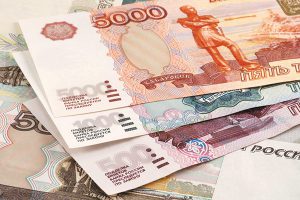Bloomberg
Russia’s central bank left interest rates unchanged for a second meeting, capping a year that included a steep monetary easing cycle that more than
reversed an emergency hike after the Kremlin’s invasion of Ukraine.
Policymakers kept their benchmark at 7.5%, according to a statement, in line with the unanimous forecast of economists surveyed by Bloomberg. The ruble maintained losses after the announcement and traded 0.5% weaker against the dollar as of 1:39 pm in Moscow.
The central bank again provided no guidance in its statement, leaving options open on the future direction of monetary policy.
“Pro-inflation risks are up and prevail over disinflationary risks,†the central bank said in the statement. “This comes as a result of rising inflation pressures from the labour market, worsening foreign trade conditions and a softer fiscal stance.â€
The central bank adopted a “neutral signal†in October after delivering 12.5 percentage points of easing in six steps to bring rates below their pre-war level. Encouraged by a steep deceleration in consumer prices, it’s been in a rush to unwind the unprecedented measures imposed after the invasion in late February as the economy lurched into crisis under the strain of sanctions from the US and its allies.
Since peaking near an annual 18% in April, annual inflation has slowed to around 12%, or near the low end of the central bank’s year-end forecast.
Price expectations, a key factor for policymakers, dropped in November for the first time in four months. But it’s the threats ahead that will increasingly dominate the agenda for Nabiullina, who’s previously signaled that looser fiscal policy is becoming a worry.
The Finance Ministry, which was forecasting a full-year budget shortfall of 0.9% of gross domestic product, now expects the deficit to reach 2% as revenues fall and expenditure rises for the war effort.
Alongside higher government spending, a call-up of people to fight in the war pose risks for inflation by straining the labour market. “At present, the capacity to expand production in the Russian economy is largely limited by the labour market conditions,†the central bank said.
“Labour shortages are increasing in many industries amid the effects of the partial mobilisation,†it said. “Under these conditions, real wage growth is accelerating in these sectors and could outpace productivity growth.
The ruble has meanwhile turned weaker as the current-account surplus — for months a major reason behind the currency’s strength — has started to fade.
 The Gulf Time Newspaper One of the finest business newspapers in the UAE brought to you by our professional writers and editors.
The Gulf Time Newspaper One of the finest business newspapers in the UAE brought to you by our professional writers and editors.
